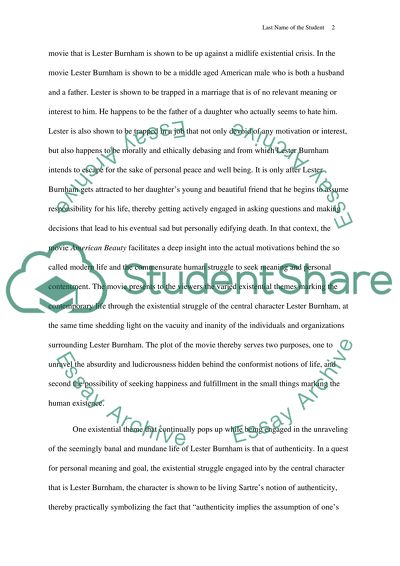Cite this document
(“American beauty and Existentialism Movie Review”, n.d.)
American beauty and Existentialism Movie Review. Retrieved from https://studentshare.org/philosophy/1458699-american-beauty-and-existentialism
American beauty and Existentialism Movie Review. Retrieved from https://studentshare.org/philosophy/1458699-american-beauty-and-existentialism
(American Beauty and Existentialism Movie Review)
American Beauty and Existentialism Movie Review. https://studentshare.org/philosophy/1458699-american-beauty-and-existentialism.
American Beauty and Existentialism Movie Review. https://studentshare.org/philosophy/1458699-american-beauty-and-existentialism.
“American Beauty and Existentialism Movie Review”, n.d. https://studentshare.org/philosophy/1458699-american-beauty-and-existentialism.


